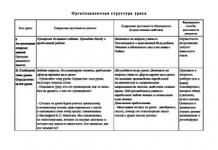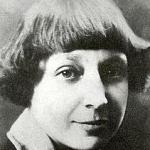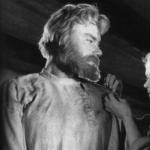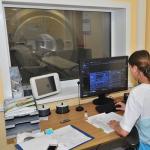Whenever there is a conversation about great Russian literature, almost the same number of unconditional authorities come to mind - Pushkin, Tolstoy, Dostoevsky, Chekhov. This list of writers can be supplemented by Nabokov or Gogol, Bulgakov or Gorky. But somehow the name of Viktor Astafiev, who would have turned 90 on May 1, 2014, is rarely heard.
Astafiev volunteered for the front in 1942 and became one of the main chroniclers of the Great Patriotic War. His novel “Cursed and Killed” is undoubtedly the most honest, poignant and vivid work of art that has been written about the war in the last 70 years.
“Writing about war, about any kind of war, is an extremely difficult, almost impossible task. But writing about the past war, the Patriotic War, is absolutely incredible work, because nowhere and never before in the history of mankind has there been such a terrible and bloody war, - said Astafiev himself. - They lied so much about this war, everything connected with it was so confused that in the end the war that was invented overshadowed the real war. Lies have piled up in congestion not only in books and works on history..., but also in the memory of many, much has shifted in the direction where the war is more beautiful than what actually happened, where there is continuous heroism, loud words and praise. And our party is the main author and purveyor of lies about the war.”
“Sometimes people write to me and say that the war I depicted is “wrong,” not like the war of those who fought it a hundred kilometers from the front line,” the writer admitted. - And it is very diverse, by the way. Not only over a hundred, she is already a kilometer away, more “correct”, heroic and interesting than on the front line. People killed people there - it’s scary, it’s inhumane. This is against reason and reason - blood, brutality, dull work, half-life, half-existence in an earthly, often damp trench.”
Willingly or unwittingly, Viktor Astafiev brought out a simple truth: “He who lies about the past war brings the future war closer.”
So, maybe there is no need to talk about the war at all? Astafiev had his own principled judgment on this matter: “It is necessary not to show the heroic war, but to frighten it, because war is disgusting. We must constantly remind people about the war so that they don’t forget. Like blind kittens, poke your nose into the shitty place, into the blood, pus into the tears.” “Alas, now I know that only God knows the whole truth about the war. Our people, for the most part, did not know it and, perhaps, do not want to know it - it is too terrible and disgusting, too much for the tired Russian people, especially true warriors, this truth is too heavy to bear,” stated Astaviev.
A lot has been said and written about the great front-line writer. But it’s always more interesting to listen to people who personally knew the hero. Here is a short sketch by Krasnoyarsk journalist Velichko about a meeting with Astafiev in a close company of colleagues over a glass of tea: “An ordinary peasant. Smart, but not an intellectual. He commanded respect. He spoke interestingly. It doesn’t seem like anything earth-shattering, but somehow succinct and weighty. But not peremptorily! I liked that among ordinary journalists he looked not like a master with a pointing finger, but like an equal among equals. I launched the juicy language a couple of times - but did not abuse these idioms. I liked that he drank vodka without any fuss and poured it for the neighbors himself. I didn’t notice any greed for this drink. After drinking a couple of glasses, I blushed, got a little hot, took off my soft, thick pullover...”
Was Astafiev treated kindly by the authorities during his lifetime? After all, Hero of Socialist Labor (1989), multiple winner of state awards. But, at the same time, he is from a family of dispossessed Siberian peasants. He was not a member of the CPSU. And in all his books you will not find signs of love for power. So who is he - a court writer or a dissident?
Astafiev himself answered these questions as follows: “I dare to think that as a writer I have never been either in the mainstream or at the forefront of socialist realism in its rigid, blinkered interpretation. I never agonized over the problem of a positive hero, the role of the party, the “working class theme” and other ideological rubbish. But I was not a dissident either. In other circumstances, who knows, but in my own, both by the nature of my writing and by my character, I simply could not be one. He wrote as he wrote, thought, breathed - both sharply, and lyrically, and “thoughtfully”. It’s a paradox that they immediately began to praise me, but at times they scolded me harshly, but suspiciously not enough.”
Fortunately, Astafiev wrote his main novel about the war, “Cursed and Killed,” already in the 1990s. Otherwise, under Soviet rule, the manuscripts would lie in the table until the end of time. The war in his novel is too “wrong”. Too much dirt and blood. War beyond the limits of human consciousness. “You have created something hitherto unprecedented,” this is from a letter from a front-line trench soldier to the writer. And it’s true - the novel did not fit into the canons of Soviet ideology. Then they definitely wouldn’t have published it.
What about today? If he had been alive, look no further - the writer Astafiev would have been branded and brought to justice “for distorting the historical truth,” as some deputies of the State Duma understand it. So we advise everyone who has not yet read “Cursed and Killed” to hurry to the bookstores - before they are removed from the shelves as an unreliable work.
Both in Astafiev’s work, and in his interviews and comments, an active rejection of Stalinism as an unnatural system that destroys a person’s personality and turns the people into an obedient, uncomplaining herd is clearly visible. Here is what he wrote about this many years ago: “There is nothing in the world more vile than Russian stupid patience, sloppiness and carelessness. Then, in the early thirties, every Russian peasant had blown his nose at the zealous authorities - and the snot would have washed away all this evil spirits, along with the monkey-like Georgian and his minions who were attacking the people. Throw a brick at a time - and our ancient Kremlin with the lice embedded in it would be crushed, buried along with the brutal gang up to the very stars. No, they sat, waited, secretly crossed themselves and quietly, with a thorn, stank into their felt boots. And they waited! The Kremlin clique grew stronger, the red punks fed on the blood of the test and began to massacre the uncomplaining people on a grand scale, freely, and with impunity.”
Yes, Astafiev was not, as they would now say, “politically correct.” He was a warrior, with his soldier's trench truth and Russian directness.
To the journalist’s question: “Are you satisfied with the years you have lived?”, he answered: “It’s good that you didn’t mess around, you worked hard. From an illiterate man he managed to advance and took his place in literature. A place that I consider to be my own. Life was not lived in vain. I have a wonderful wife who does not demand more from me than I am. I have my readers - I know from letters, phone calls... By the way, writers are not born from a prosperous life. But in Russia there has always been enough suffering and torment.”
In the last years of his life, Viktor Astafiev rarely gave interviews. He was seriously ill, but at the same time he continued to work hard. The great Russian front-line writer died in the late autumn of 2001 at the 78th year of his life, in the same place where he was born - in the village of Ovsyanka, Krasnoyarsk Territory.
Peter Morgunov,"Rush Hour. spb"
FROM LETTERS ABOUT THE WAR OF VIKTOR ASTAFYEV Dnieper bridgeheads! I was south of Kyiv, on those very Bukrin bridgeheads (on two of the three). I was wounded there and I maintain, I will maintain until death, that only those who did not give a damn about someone else’s human life could force us to cross and fight. Those who remained on the left bank and, “not sparing their lives,” glorified our “exploits.” And we are on the other side of the Dnieper, on a piece of land, hungry, cold, without tobacco, cartridges out of stock, no grenades, no shovels, dying, eaten by lice, rats, who from somewhere poured into the trenches en masse. Oh, would you not touch our pain, our grief while we are still alive. I tried to write a novel about the Dnieper bridgehead, but I can’t: it’s scary, even now it’s scary, and my heart stops, and I have headaches. Maybe I don’t have the courage that is necessary to write about everything, like other seasoned, unbending warriors! 1973 ***** December 13, 1987 ...This is what we have lived to see, we have lied and grown stupid! And who guarded all this, turned a blind eye to the people, frightened them, imprisoned them, carried out reprisals? Who are these chain dogs? What kind of shoulder straps do they have? Where did they study and from whom? And they learned that they don’t notice that they eat, relax, live separately from the people and consider this a normal thing. At the front, as a general, you ate, of course, from the soldiers’ kitchens, but I saw that even Vanka the platoon commander tried to eat and live separately from the soldier, but, alas, he quickly realized that he couldn’t do it, although he is a “general” on the front line, he is not “one of those”, and he will quickly starve or simply die - from fatigue and twitchiness. ...It’s difficult for you to agree with me, but the Soviet military is the most rabid, the most cowardly, the most vile, the most stupid of all that existed before it in the world. She “won” 1:10! It was she who threw our people like straw into the fire - and Russia was no more, and the Russian people were no more. What was Russia is now called the Non-Black Earth Region, and all this is overgrown with weeds, and the remnants of our people fled to the city and turned into punks who left the village and did not come to the city. How many people lost in the war? You know and remember. It's scary to name the true number, isn't it? If you call it, then instead of a ceremonial cap, you need to put on a schema, kneel on Victory Day in the middle of Russia and ask your people for forgiveness for the mediocre “won” war, in which the enemy was overwhelmed with corpses, drowned in Russian blood. It is no coincidence that in Podolsk, in the archive, one of the main points of the “rules” reads: “Do not write out compromising information about the commanders of the Sovarmiya.” In fact: start writing down - and you will find out that after the defeat of the enemy’s 6th Army (on two fronts!) the Germans created the “Kharkov Cauldron”, in which Vatutin and others like him cooked up six (!!!) armies, and the Germans took only More than a million of our valiant soldiers were captured along with the generals (and they took a whole bunch of them, like they pulled a red radish out of a ridge).<…> Maybe I should tell you how Comrade Kirponos, having abandoned five armies in the south, fired, opening a “hole” to Rostov and beyond? Maybe you haven’t heard that Manstein, with the forces of one eleventh army, with the support of part of the second air army, passed the heroic Sivash and, in front of the eyes of the valiant Black Sea Fleet, swept away everything that we had in the Crimea? And moreover, leaving besieged Sevastopol for a short time, he “ran away” to Kerch and with a “tank fist”, the basis of which was two tank corps, showed political instructor Mehlis that he should publish a newspaper, albeit “Pravda”, where from the first to the last page he exalted he the Great Leader is one thing, but fighting and leading troops is a completely different matter, and he gave him so that (two) three (!) armies swam and sank in the Kerch Strait. Well, okay, Mehlis, a sycophantic courtier, a talker and a sycophant, but how in 1944, under the command of Comrade Zhukov, we destroyed the enemy’s 1st Tank Army, and it did not allow itself to be destroyed by our two main fronts and, moreover, blocked the road to the Carpathians The 4th Ukrainian Front with the valiant 18th Army at its head and the entire left flank of the 1st Ukrainian Front, which after Zhukov fell under the leadership of Konev in a completely upset state. If you are not completely blind, look at the maps in the well-edited “History of the Patriotic War”; note that everywhere, starting with the maps of 1941, seven or eight red arrows rest on two, or at most three blue ones. Just don’t tell me about my “illiteracy”: they say, the Germans have armies, corps, and divisions that are numerically larger than ours. I don’t think that the 1st Tank Army, which was beaten on two fronts all winter and spring, was numerically greater than our two fronts, especially since you, as a military specialist, know that during combat operations this is all very, very conditional. But even if not conditionally, it means that the Germans knew how to reduce the administrative apparatus and with a “small apparatus”, honestly and skillfully working specialists, managed the armies without the mess that haunted us until the end of the war. What is our connection worth?! God! I still have nightmares about her. We are all already old, gray and sick. Soon to die. Whether we like it or not. It's time to pray to God! We cannot forgive all our sins: there are too many of them, and they are too monstrous, but the Lord is merciful and will help to at least somewhat cleanse and alleviate our spit-stained, humiliated and insulted souls. This is what I wish for you from the bottom of my heart. Victor ASTAFIEV. ****** ...I was an ordinary soldier, I saw generals from afar, but fate wanted me to see the commander of the 1st Ukrainian Front Konev from afar, and one day - as fate would have it! - I saw and heard Zhukov very close to the city of Proskurov. It would be better for me to never see him and even better - not to hear him. And I had no luck with aviation. I started on the Bryansk front, and the first plane I saw shot down, alas, was not a German one, but our “Lavochkin”; it fell not far from our kitchen in a spring birch forest, and somehow fell so awkwardly that the intestines of the pilot, who fell out of the cockpit, were stretched all over the white birch, still thinly sprinkled with leaves. And after that, for some reason, I saw how our people were shot down more often, and it got to the point that we could clearly distinguish between our and German planes by the outlines of the wings, so sacredly we lied to each other: “Here the Fritz screwed up again!.. ...Yes, of course, all wars on earth ended in turmoil, and the victors were punished. How could Satan, sitting on the Russian throne, not be afraid of the unification of such people and minds as Zhukov, Novikov, Voronov, Rokossovsky, behind whom were robbed, impoverished people and warriors who came from Europe and saw that we were living not better, but worse? everyone. Indignation accumulated, and someone told Satan that this could end badly for him, and he drove the saviors of his skin into the camps, and not only marshals and generals, but clouds of soldiers and officers, and they died in this merciless battle. But they haven’t gone anywhere, they all lie in the permafrost with tags on their legs, and many with their buttocks cut out, used for food, even ate fresh frozen ones when it was impossible to light a fire. Oh, my mothers, they still want and demand that our people be able to live freely, manage themselves and their minds. Yes, everything is clogged, muffled, and destroyed, and humiliated. The people no longer have the same strength as they had, say, in the 1930s, so that they could all at once rise from their knees, become smarter, become more mature, and learn to govern themselves and their Russia, large and bloodless. Read the book I am sending you, and you will see what it was like for ordinary people. My Marya, a Komsomol volunteer, and I, God had mercy, were neither a Pioneer, nor a Komsomol member, nor a member of the party, we were too reckless. My grandmother comes from a working-class family of nine children, she is small, has a strong character, and all the burdens fell mainly on her. Our two daughters died - one eight months old, the other 39 years old, we raised her children, two grandchildren, but you will learn everything else from the book. And forgive me for the handwriting, I’m writing from my native village, and Marya is in the city with her typewriter, I don’t even know how to type. I bow to you deeply. Yours V. Astafiev. 2000
Viktor Astafiev might not have gone to the front. Upon graduating from the factory school, he was given a “reservation” as a certified railway worker - train compiler.
Igarsky orphanage and orphan Vitka Astafiev graduated from sixth grade the winter before the war. He was no longer allowed to stay in a social institution because he had reached his age. It was necessary to start an independent life, think about the future, and, therefore, somehow get out of the North. The young man earned money for the journey himself by becoming a horse carrier at a brick factory that existed in Igarka in those years. The teenager picked up sawdust at the lumber mill, loaded it onto a cart and took it to the furnaces where the bricks were fired. By the summer, the necessary amount of money to buy a ticket for the ship had been saved, and in Krasnoyarsk, Victor entered the railway school of factory training No. 1 at the Yenisei station - the prototype of a modern vocational school.
War was already raging in the West. Almost without rest, always hungry, in fact, still children, Victor had barely turned eighteen, the young railway workers were constantly busy with work. Trains with equipment from evacuated factories and people arrived at Bazaikha station one after another. On one of the trains from Leningrad, a carriage was unhooked, and the dead were carried and stored into it along the route from the besieged city. Victor was included in the burial group. As he later wrote in “The Last Bow”: “I was not just crushed by the funeral, I was gutted, destroyed by it, and, without going to work, I went to Berezovka, to the military registration and enlistment office to ask to go to the front.” This happened just four months after the start of his work history.
Volunteer Astafiev in 1942 was first sent to the 21st Infantry Regiment, located near Berdsk, and then he was transferred to the 22nd Automobile Regiment in the military town of Novosibirsk, and only in the spring of 1943 he was sent to the front line...
In the nineties, Viktor Petrovich wrote his most important work about the war - the novel “Cursed and Killed.” I wrote this despite the persecution of the writer going on in periodicals. Such a scathing and mercilessly capacious assessment of the war, contained in the very title of the novel, could only be given by a person who had great courage, endured suffering and said openly what immediately crossed out all the works of art about the heroics of war previously created by powerful monumental propaganda.
He wrote: “I was an ordinary soldier in the war and ours, the soldier’s truth, was called by one very lively writer “trench”; our statements are “point of view.”
And here are his “trench postulates”, born from the first days of being in a training unit near Novosibirsk: no serious preparation, no training of young, unfired fighters was carried out. “They simply forgot about us, they forgot to feed us, they forgot to teach us, they forgot to give us uniforms.” According to Astafiev, when they finally arrived from the reserve regiment at the front, the army was more like vagabonds. These were not soldiers, but exhausted, tired old men with dull eyes. Due to lack of strength and skill, most of them died in the first battle or were captured. “They never brought the benefit to the Motherland that they wanted, and, most importantly, they could bring.”
Most of the soldiers wore tunics with a seam on the stomach. The same seams were on the underwear. Many did not know why this seam was made, they were perplexed, but the explanation was simple - the clothes were taken from the dead. You can’t take it off like that, you just have to cut it and then sew it up. Having realized this, the soldiers themselves began to dress in this way, taking clothes off the dead Germans - they were seriously preparing for war, the cloth was good, and wore out less. Ukrainian peasant women, and it was in Ukraine that soldier Astafiev’s military journey began, often mistook our soldiers for captured Germans, not understanding who was in front of them in such pitiful attire. Astafiev received a tunic with a turn-down collar, apparently for a junior officer, but it contained more lice - that’s all its advantage. Only in December 1943 was the unit finally equipped.
Private Viktor Astafiev fought in the 17th Artillery, Orders of Lenin, Suvorov, Bogdan Khmelnitsky, Red Banner breakthrough division, which was part of the 7th Artillery Corps of the main striking force of the 1st Ukrainian Front. The corps was the reserve of the High Command.
“The Cheerful Soldier” Viktor Astafiev was a driver, artilleryman, intelligence officer, and signalman. Not a staff telephone operator, but a line supervisor, ready, at the first order of the commander, to crawl under bullets, looking for a rush on the line. This is how he himself wrote about the specifics of his military position as a telephone operator later: “When the scolded, scolded, tattered, torn line signalman went alone to a cliff, under fire, he would illuminate the last, sometimes angry, sometimes sadly envious glance of the soldiers remaining in the trench, and clutching the parapet of the trench, he cannot overcome the steepness. Oh, how understandable he is, how close he is at that moment and how awkward it is to be in front of him - you involuntarily look away and wish that the break in the line was not far away, so that the signalman would return “home” as soon as possible, then he and everyone’s soul would feel better.”
Signalmen experienced the possibility of death more often than others, and their joy in life was sharper. The sad statistics of the combat path of the soldiers called up by the Igarsk military registration and enlistment office confirms what has been said: northerners were often appointed signalmen, and among them there was a higher percentage of both those who died and those who received awards. The fighter Astafiev echoes this: “And when, alive and unharmed, the signalman collapses into the trench, clanking with a piece of wood from the apparatus, leaning against its dirty wall in happy exhaustion, give him, out of brotherly feelings, a half-smoked cigarette. The signalman brother will pull it, but not right away, first he will open his eyes, look at the one who gave the “forty”, and you will read so much gratitude that it won’t fit in your heart.”
However, the work of the “lineman” was also appreciated by the government award from the command. In the battle on October 20, 1943, Red Army soldier Astafiev corrected the telephone connection with the forward observation post four times. “While performing the task, he was covered with earth by a nearby bomb explosion. Burning with hatred for the enemy, Comrade Astafiev continued to carry out the task even under artillery and mortar fire, collected pieces of cable, and again restored telephone communications, ensuring uninterrupted communication with the infantry and its support with artillery fire,” this is what is written on the award sheet when senior telephone operator Astafiev was presented for the medal “For courage”...
If only we could laugh now at the literary opuses of the staff clerk, but Viktor Petrovich may not have even seen this document, and left his descendants with memories of a completely different plan:
According to Astafiev, it was the war that became the reason that he took up the pen. In the early 50s, Viktor Petrovich went to a literary circle opened at the local newspaper “Chusovskoy Rabochiy” in the Urals, where he once heard a short story by a writer - a political worker during the war. The war was beautiful for him, and the main thing that outraged him was that someone who was also on the front line wrote about it. Astafiev, in his words, felt his shell-shocked head ringing from such lies. Arriving home and calming down, he decided that the only way to fight lies was the truth. And overnight, in one breath, he wrote his first story, “A Civilian” (modern title “Siberian”), in which he described his war as he saw and knew it. And that was just the beginning.
When citing this well-known fact, the writer’s biographers do not always add that the former orphanage resident had nowhere to return from the war. Together with his front-line wife, he went to her native Ural town of Chusovoy. The displaced tenants, emboldened by the war, did not think to vacate the family of the front-line soldier, who occupied and did not pay for the outbuilding in the yard. The major brother-in-law, who had returned from the war, took the best place in the house in a room on the second floor, filling the room to capacity with trophy rags and talking “through his lips” with the junior in rank, Victor, who was forced to huddle with his young wife in the kitchen behind the stove on the floor. Victor either shoveled snow or unloaded wagons before he got a job as a watchman at a sausage factory, where this story was born on the night shift. The writer’s wife Maria Koryakina told about this. She told not only about the ups and downs of the family life of front-line soldiers returning from the war, but also about her daughter Lidochka, who died of dyspepsia in infancy. The young mother did not have enough milk due to constant malnutrition.
In the spring of 2009, a volume of letters from Viktor Astafiev (1924-2001) “There is no answer for me... An epistolary diary” was published. 1952-2001." Before this, the compiler and publisher - Irkutsk resident Gennady Sapronov (1952-2009) - gave Novaya Gazeta the layout of the book and the right to first publish letters selected by the editors (see No. 42, 46 for 2009). Three weeks later, at one of the meetings organized by United Russia, Sapronov and the Novaya journalists who presented the book to the audience were offered to be shot for it; Gennady wrote to Novaya columnist Alexei Tarasov: “That’s it! I’m going to join the partisans.” And a month later, having managed to prepare the second, expanded edition of Astafiev’s letters, he died.
Victor Astafiev. Photo: Anatoly Belonogov
1973
(I. Sokolova)
[…] With you, and in any thing where there is an “I” - it, this “I”, requires a lot, first of all, restraint, caution in handling this very “I” and, most importantly, it is necessary to depict, and not to retell. At first, your seventeenth artillery division was on the march... But it was our brigade, armed with howitzers of the 1908 model of the Schneider system, smelted at the Tula plant (howitzers in which for the first shot the barrel was rolled by hand and the projectile was sent into the barrel with a banner), found itself at the forefront of the attack Germans. At first we were crushed by our units retreating in panic and were not allowed to dig in properly. Then the tanks poured in - we held out for several hours, because the old howitzers were manned by Siberians, who were not so easy to frighten, knock down and crush. Of course, in the end we were crushed to dust, only one and a half guns remained from the brigade - one without a wheel and something like three hundred people out of more than two thousand. But in the meantime, the tanks that broke through us were met by artillery deployed in battle formations and finished off by the rest of our division. The counterattack did not work. The Germans were defeated. Comrade Trofimenko became an army general, received another order, and my fellow soldiers have long been plowed and sown with wheat near Okhtyrka...
Very often our paths coincided during the war: the entire journey to the Dnieper was almost common. I was near Akhtyrka. Our brigade turned out to be the unfortunate part that sometimes had the fate of being in the hottest place at the moment of impact and dying while holding back this blow. Akhtyrka, in my opinion, was occupied by the 27th Army and rushed forward, exposing its flanks. The Germans immediately took advantage of this and launched a counterattack from two sides - from Bogodukhov and Krasnokutsk, in order to cut off the army that General Trofimenko was so headlessly leading forward.
Dnieper bridgeheads! I was south of Kyiv, on those very Bukrin bridgeheads (on two of the three). I was wounded there and I maintain, I will maintain until death, that only those who did not give a damn about someone else’s human life could force us to cross and fight. Those who remained on the left bank and, “not sparing their lives,” glorified our “exploits.” And we are on the other side of the Dnieper, on a piece of land, hungry, cold, without tobacco, cartridges out of stock, no grenades, no shovels, dying, eaten by lice, rats, who from somewhere poured into the trenches en masse.
Oh, would you not touch our pain, our grief while we are still alive. I tried to write a novel about the Dnieper bridgehead, but I can’t: it’s scary, even now it’s scary, and my heart stops, and I have headaches. Maybe I don’t have the courage that is necessary to write about everything, like other seasoned, unbending warriors! […]
(Destination not set)
[…] This is what we’ve come to, we’ve lied and become stupid! And who guarded all this, turned a blind eye to the people, frightened them, imprisoned them, carried out reprisals? Who are these chain dogs? What kind of shoulder straps do they have? Where did they study and from whom? And they learned that they don’t notice that they eat, relax, live separately from the people and consider this a normal thing. At the front, as a general, you ate, of course, from the soldiers’ kitchens, but I saw that even Vanka the platoon commander tried to eat and live separately from the soldier, but, alas, he quickly realized that he couldn’t do it, although he is a “general” on the front line, he is not “one of those”, and he will quickly starve or simply die - from fatigue and twitchiness.
Don't lie to yourself, Ilya Grigorievich! At least for yourself! It is difficult for you to agree with me, but the Soviet military is the most rabid, the most cowardly, the most vile, the most stupid of all that existed before it in the world. She “won” 1:10! It was she who threw our people like straw into the fire - and Russia was no more, and the Russian people were no more. What was Russia is now called the Non-Black Earth Region, and all this is overgrown with weeds, and the remnants of our people fled to the city and turned into punks who left the village and did not come to the city.
How many people lost in the war? You know and remember. It's scary to name the true number, isn't it? If you call it, then instead of a ceremonial cap, you need to put on a schema, kneel on Victory Day in the middle of Russia and ask your people for forgiveness for the mediocre “won” war, in which the enemy was overwhelmed with corpses, drowned in Russian blood. It is no coincidence that in Podolsk, in the archive, one of the main points of the “rules” reads: “Do not write out compromising information about the commanders of the Sovarmiya.”
In fact: start writing down - and you will find out that after the defeat of the enemy’s 6th Army (on two fronts!) the Germans created the “Kharkov Cauldron”, in which Vatutin and others like him cooked up six (!!!) armies, and the Germans took only More than a million of our valiant soldiers were captured along with the generals (and they took a whole bunch of them, like they pulled a red radish out of a ridge).<…>Maybe I should tell you how Comrade Kirponos, having abandoned five armies in the south, fired, opening a “hole” to Rostov and beyond? Maybe you haven’t heard that Manstein, with the forces of one eleventh army, with the support of part of the second air army, passed the heroic Sivash and, in front of the eyes of the valiant Black Sea Fleet, swept away everything that we had in the Crimea? And moreover, leaving besieged Sevastopol for a short time, he “ran away” to Kerch and with a “tank fist”, the basis of which was two tank corps, showed political instructor Mehlis that he should publish a newspaper, albeit “Pravda”, where from the first to the last page he exalted he the Great Leader is one thing, but fighting and leading troops is a completely different matter, and he gave him so that (two) three (!) armies swam and sank in the Kerch Strait.
Well, okay, Mehlis, a sycophantic courtier, a talker and a sycophant, but how in 1944, under the command of Comrade Zhukov, we destroyed the enemy’s 1st Tank Army, and it did not allow itself to be destroyed by our two main fronts and, moreover, blocked the road to the Carpathians The 4th Ukrainian Front with the valiant 18th Army at its head and the entire left flank of the 1st Ukrainian Front, which after Zhukov fell under the leadership of Konev in a completely upset state.<…>
If you are not completely blind, look at the maps in the well-edited “History of the Patriotic War”; note that everywhere, starting with the maps of 1941, seven or eight red arrows rest on two, or at most three blue ones. Just don’t tell me about my “illiteracy”: they say, the Germans have armies, corps, and divisions that are numerically larger than ours. I don’t think that the 1st Tank Army, which was beaten on two fronts all winter and spring, was numerically greater than our two fronts, especially since you, as a military specialist, know that during combat operations this is all very, very conditional. But even if not conditionally, it means that the Germans knew how to reduce the administrative apparatus and with a “small apparatus”, honestly and skillfully working specialists, managed the armies without the mess that haunted us until the end of the war.
What is our connection worth?! God! I still have nightmares about her.
We are all already old, gray and sick. Soon to die. Whether we like it or not. It's time to pray to God, Ilya Grigorievich! We cannot forgive all our sins: there are too many of them, and they are too monstrous, but the Lord is merciful and will help to at least somewhat cleanse and alleviate our spit-stained, humiliated and insulted souls. This is what I wish for you from the bottom of my heart.
Victor ASTAFIEV.
Krasnoyarsk
(G. Vershinin)
[…] As for the ambiguous attitude towards the novel, I know from letters: from retired commissars and military officials - swearing, and from trench soldiers and officers there are letters of approval, many with the words: “Thank God, we lived to see the truth about the war !..”
But the truth about the war itself is ambiguous. On the one hand - Victory. Even if it was a huge, annoying, huge bloodshed and with such huge losses that we are still embarrassed to divulge them. Probably 47 million is the most truthful and terrible figure. And how could it be otherwise? When German pilots were asked how they, the heroes of the Reich, managed to shoot down 400-600 planes, and the Soviet hero Pokryshkin - two, and also a hero... The Germans who studied at our aviation schools modestly answered that at the time when the Soviet The pilots sat in classrooms, studying the history of the party; they flew and prepared for battle.
Three million, almost our entire regular army, was captured in 1941, and 250 thousand hungry, homeless soldiers wandered around Ukraine the whole winter, so as not to feed and protect them, they were not even taken prisoner, and they began to unite in gangs, then went into the forests, declaring themselves partisans...
Oh, this “truth” of war! We, six people from one artillery battalion control platoon - only three remained - got together and argued and swore more than once, remembering the war - even one battle, one incident, a transition - we remembered everything differently. But if you combine this “truth” of six with the “truth” of hundreds, thousands, millions, you will get a more complete picture.
“Only the people know the whole truth,” said Konstantin Simonov, shortly before his death, who heard this great phrase from front-line soldiers.
I, having delved into the material of the war, not only from our side, but also from the other side, I now know that we were saved by a miracle, the people and God, who saved Russia more than once - both from the Mongols, and in troubled times, and in 1812, and in the last war, and now hope is only in him, in the merciful one. We have greatly angered the Lord, we have sinned a lot and terribly, we all need to pray, and this means behaving with dignity on earth, and maybe He will forgive us and will not turn His merciful face away from us, disgruntled, evil, incapable of repentance.
The third book will be about our people, the great and long-suffering people, who, sacrificing themselves and even their future, saved the whole earth from desecration with their tears, blood, bones and torments, and inflicted blood on themselves and Russia. And the Russian holy village went wild, tired, embittered, the people themselves became piecemeal, never making up for the losses of the nation, never overcoming the terrible shocks, military, post-war persecutions, camps, prisons and forced new buildings, and our valiant village was already in convulsions. economy, without the resurrection of which, as well as without a return to the spiritual principle in all of life, we cannot survive. […]
1995
(to Kozhevnikov)
My dear brother in war!
Alas, your bitter letter is not the only one on my desk. There are stacks of them, both in newspaper offices and on my desk, and I can’t help you with anything except advice.
Collect all your documents in your pocket, all your correspondence, put on all your awards, write a poster: “Fellow citizens! Compatriots! I was wounded four times in the war, but I am humiliated - I was denied disability! I receive a pension of 5.5 thousand rubles. Help me! I helped you with my blood!” Nail this poster to a stick and early in the morning, while there is no cordon, stand with it on the central square of Tomsk on May 9, Victory Day.
The police will try to intimidate you and even coerce you, don’t give up, say that everything is filmed - for the cinema. Demand that the chairman of the regional executive committee or the military commissar of the regional military registration and enlistment office come for you personally. And until they arrive in person, don’t move.
This will help you immediately. In three days, I assure you, your pension case will be started everywhere. But be as courageous as you would at the front. Stick with it until the end!
If they start persecuting you and insulting you, give me a short telegram about this, and I will create such a scandal for these fellow Siberians that some of them will fly from their warm places.
Do another feat, Siberian! In the name of the same humiliated and offended, in the name of their calm old age. I wish you courage!
Yours V. Astafiev, war veteran, writer, laureate of State Prizes
A copy of Kozhevnikov’s letter, along with mine, to the Tomsk Regional Executive Committee. A copy of the letter remains with me.
(S. Novikova)
Dear Svetlana Alexandrovna!
I received your book a long time ago, but I never managed to read it: vanity, illness, weakening eyesight and graphomaniacs banging on the door leave no time for reading.
You threw the book-document, albeit in a thousand copies, into future times like a weighty cobblestone, as another vivid evidence of our troubles and victories, which does not coincide with the demagoguery that reigned, and still reigns in our decrepit society, decrepit and breasts, both spiritually and morally. A necessary, important book. Of course, those who run or are already hobbling around the squares and streets with portraits of Stalin do not read any books and will not read any more, but in two or three generations a spiritual resurrection will be required, otherwise Russia will perish, and then the truth about the soldiers will be in demand, and about marshals. By the way, a soldier, even three times wounded, like me, is still rare in Rus', but it happens, and commanders, marshals, both main and non-chief ones, have long since died out, such was their “easy” life, and even this Satan, for some reason As a punishment to Russia, the messenger drank their blood and shortened their age.
I was an ordinary soldier, I saw generals from afar, but fate wanted me to see the commander of the 1st Ukrainian Front, Konev, from afar, and one day - as fate would have it! — I saw and heard Zhukov very close to the city of Proskurov. It would be better for me to never see him and even better not to hear him. And I had no luck with aviation. I started on the Bryansk front, and the first plane I saw shot down, alas, was not a German one, but our “Lavochkin”; it fell not far from our kitchen in a spring birch forest, and somehow fell so awkwardly that the intestines of the pilot, who fell out of the cockpit, were stretched all over the white birch, still thinly sprinkled with leaves. And after that, for some reason, I saw how our people were shot down more often, and it got to the point that we could clearly distinguish between our and German planes by the outlines of the wings, so sacredly we lied to each other: “Here the Fritz screwed up again!”
The story with Horovets doesn’t look as good as in your book, he really shot down 9 planes, but not only the Yu-873, but also others, and there were those on the ground who didn’t shoot down even one, and they sent him into the air then, when the limit of his strength was over, and by evening he was shot down and accused of having fallen into the enemy's favor and surrendering. Justice triumphed many years later, it triumphed by an absurd accident, and when a monument-bust to Horovets was erected on the Kursk Bulge, one mother came, and the father said: “They sold him, let them not bury him.”
“The Ballad of a Shot Heart” was written by my old friend Nikolai Panchenko, he lives in Tarusa, near Moscow, and is almost blind. “Stalingrad on the Dnieper” - a documentary story - was written by Sergei Sergeevich Smirnov, it was published in Novy Mir, but I have not seen a separate publication.
Oh, how much I would like to tell you, but I’m not enough for a long letter, and I just kiss your hands and put my palm on the place where your heart, which has endured so much adversity and endured such work.
Yes, of course, all wars on earth ended in turmoil, and the winners were punished. How could Satan, sitting on the Russian throne, not be afraid of the unification of such people and minds as Zhukov, Novikov, Voronov, Rokossovsky, behind whom were robbed, impoverished people and warriors who came from Europe and saw that we were living not better, but worse? everyone. Indignation accumulated, and someone told Satan that this could end badly for him, and he drove the saviors of his skin into the camps, and not only marshals and generals, but clouds of soldiers and officers, and they died in this merciless battle. But they haven’t gone anywhere, they all lie in the permafrost with tags on their legs, and many with their buttocks cut out, used for food, even ate fresh frozen ones when it was impossible to light a fire.
Oh, my mothers, they still want and demand that our people be able to live freely, manage themselves and their minds. Yes, everything is clogged, muffled, and destroyed, and humiliated. The people no longer have the same strength as they had, say, in the 1930s, so that they could all at once rise from their knees, become smarter, become more mature, and learn to govern themselves and their Russia, large and bloodless.
Read the book I am sending you, and you will see what it was like for ordinary people. My Marya, a Komsomol volunteer, and I, God had mercy, were neither a Pioneer, nor a Komsomol member, nor a member of the party, we were too reckless. My grandmother comes from a working-class family of nine children, she is small, has a strong character, and all the burdens fell mainly on her. Our two daughters died - one eight months old, the other 39 years old, we raised her children, two grandchildren, but you will learn everything else from the book. And forgive me for the handwriting, I’m writing from my native village, and Marya is in the city with her typewriter, I don’t even know how to type.
I bow to you deeply. Yours V. Astafiev.
Viktor Petrovich Astafiev (05/01/1924 - 11/29/2001) - Soviet and Russian writer, prose writer, essayist, most of whose works were written in the genre of military and village prose. He is among the galaxy of writers who have made a great contribution to the development of Russian literature. Astafiev was a veteran of the Great Patriotic War, he had fought since 1943. Until the end of the war, Viktor Astafiev remained a simple soldier, he was a driver, signalman, and artillery reconnaissance officer. Hero of socialist labor, laureate of 2 USSR state awards.
Victor Astafiev was born into the family of peasant Pyotr Pavlovich Astafiev on May 1, 1924 in the village of Ovsyanka, located in the Krasnoyarsk Territory. The writer's mother Lydia Ilyinichna died tragically when he was only 7 years old. She drowned in the Yenisei, this event and the river will subsequently pass through all his works. Astafiev will spend his best hours and days on the river, about which he will write books, remembering his mother in them. The mother remained in the writer’s life as a light shadow, a touch, a memory, and Victor never tried to burden this image with any everyday details.
The future writer went to school at the age of 8. In the 1st grade, he studied in his native village, and finished elementary school in Igarka, where his father moved to work. He graduated from primary school in 1936. In the fall, when he had to study in the 5th grade, trouble happened to him: the boy was left alone. Until March 1937, he somehow studied and was even a street child, until he was sent to the Igarsky children's boarding school. Recalling the time spent in the orphanage, Victor Astafiev recalled with a special sense of gratitude the director Vasily Ivanovich Sokolov and the boarding school teacher Ignatius Rozhdestvensky, who was a Siberian poet and instilled in Victor a love of literature. These two people had a beneficial influence on the writer during the difficult years of his life. Astafiev’s essay for a school magazine about his favorite lake in the future became a full-fledged story “Vasyutkino Lake”.
In 1941, Astafiev completed his studies at a boarding school and, at the age of 17, with difficulty, since the war was already going on, he reached Krasnoyarsk, where he entered the FZU railway school. After graduating from college, he worked for 4 months at the Bazaikha station, after which he volunteered to go to the front. Until the end of the war he remained an ordinary soldier. Viktor Astafiev fought on the Bryansk, Voronezh and Steppe fronts, as well as as part of the troops of the First Ukrainian Front. For his services, he was awarded military orders and medals: the Order of the Red Star, as well as the most valuable soldier’s medal “For Courage”, medals “For the Liberation of Poland”, “For Victory over Germany”.
At the front, he was seriously wounded several times, and here in 1943 he met his future wife Maria Koryakina, who was a nurse. These were 2 very different people: Astafiev loved his village of Ovsyanka, where he was born and spent the happiest years of his childhood, but she did not love. Victor was very talented, and Maria wrote out of a sense of self-affirmation. She adored her son, and he loved his daughter. Viktor Astafiev loved women and could drink, Maria was jealous of him both for people and even for books. The writer had two illegitimate daughters, whom he hid, and all his years his wife passionately dreamed only that he would be completely devoted to his family. Astafiev left the family several times, but each time he returned. Two such different people could not leave each other and lived together for 57 years until the writer’s death. Maria Koryakina was always for him a typist, a secretary and an exemplary housewife. When his wife wrote her own autobiographical story, Signs of Life, he asked her not to publish it, but she did not listen. Later, he also wrote an autobiographical story, The Jolly Soldier, which recounted the same events.
Viktor Astafiev was demobilized from the army in 1945 along with his future wife, after the war they returned to Maria’s hometown of Chusova, located in the Urals. Severe wounds received at the front deprived Victor of his professional profession - his hand did not work well, and he had only one good eye left. All of his jobs immediately after the war were casual and unreliable: laborer, loader, mechanic, carpenter. Life for the young people, frankly speaking, was not fun. But one day Viktor Astafiev attended a meeting of a literary circle organized by the Chusovoy Rabochiy newspaper. This meeting changed his life, after which he wrote his first story “Civilian” in just one night; the year was 1951. Soon Astafiev became a literary worker at the Chusovoy Worker. He wrote a very large number of articles, stories and essays for this newspaper; his literary talent began to reveal all its facets. In 1953, his first book, Until Next Spring, was published, and in 1955 he published a collection of stories for children, Lights.

In 1955-57, he wrote his first novel, “The Snow is Melting,” and also published 2 more books for children: “Vasyutkino Lake” and “Uncle Kuzya, Chickens, Fox and Cat.” In April 1957, Astafiev began working as a special correspondent for the Perm Regional Radio. After the release of the novel “The Snow is Melting,” he was accepted into the Writers' Union of the RSFSR. In 1959, he was sent to Moscow to attend the Higher Literary Courses organized at the Literary Institute. M. Gorky. He studied in Moscow for 2 years, and these years were marked by the flowering of his lyrical prose. He wrote the story “The Pass” - 1959, “Starodub” - 1960, in the same year, in one breath, in a few days, he published the story “Starfall”, which brought the writer wide fame.
The 1960s turned out to be very fruitful for Viktor Astafiev; he wrote a large number of stories and short stories. Among them are the stories “Theft” and “War Is Rumbling Somewhere.” At the same time, the short stories he wrote formed the basis of the story in the stories “The Last Bow”. Also during this period of his life he wrote 2 plays - “Bird cherry” and “Forgive me”.
Childhood in the village and the memories of youth could not go unnoticed, and in 1976 the village theme was most vividly and fully revealed in the story “The Fish King” (narration in stories), this work was included in the school curriculum and is still loved by many domestic readers. For this work in 1978 the writer was awarded the USSR State Prize.

The main feature of Viktor Astafiev’s artistic realism was the depiction of life and the surrounding reality in its fundamental principles, when life reaches the level of reflection and consciousness and, as if from itself, gives birth to moral supports that strengthen our existence: kindness, compassion, selflessness, justice. The writer in his works subjects all these values and meaningfulness of our life to quite severe tests, primarily due to the extreme conditions of Russian reality itself.
Another feature of his works was the testing of the strong and good foundation of the world - war and man’s relationship to nature. In his story “The Shepherd and the Shepherdess,” Viktor Astafiev, with his characteristic poetic detail, demonstrates to the reader the war as a complete hell, which is terrible not only for its degree of moral shock and physical suffering of a person, but also for the unbearableness of the military experience for the human soul. For Astafiev, the horror of war, what would later be called “trench truth” was the only possible truth about that terrible war.
And although selflessness and self-sacrifice, often paid for with one’s own life, the indestructibility of good, military brotherhood are exposed and manifested during war, and no less in military life, Viktor Astafiev does not see the price that could justify human “massacre.” The memory of the war, the incompatibility of military and peaceful experiences will become the leitmotif of many of his works: “Starfall”, “Sashka Lebedev”, “Is it a clear day”, “Feast after the victory”, “Live life” and others.

In 1989, for his writing services, Viktor Astafiev was awarded the title of Hero of Socialist Labor. After the collapse of the USSR, he created one of his most famous war novels, “Cursed and Killed,” which was published in 2 parts: “Black Pit” (1990-1992) and “Bridgehead” (1992-1994). In 1994, “for his outstanding contribution to Russian literature,” the writer was awarded the Triumph Prize; the following year, for his novel “Cursed and Killed,” he was awarded the State Prize of the Russian Federation. In 1997-1998, a complete collection of the writer’s works was published in Krasnoyarsk, which consisted of 15 volumes and contained detailed comments by the author.
The writer died in 2001, spending almost the entire year in Krasnoyarsk hospitals. His age and the wounds he received in the war had an effect. The best thing a writer can leave behind is his works; in this regard, we are all lucky with Astafiev’s complete collected works of 15 volumes. The books of Viktor Astafiev for their realistic depiction of military life and lively literary language were and remain popular in our country, as well as abroad. In this regard, they were translated into many languages of the world and were published in millions of copies.
Http://chtoby-pomnili.com/page.php?id=1183
- http://www.litra.ru/biography/get/biid/00137841227895687163
- https://ru.wikipedia.org


















